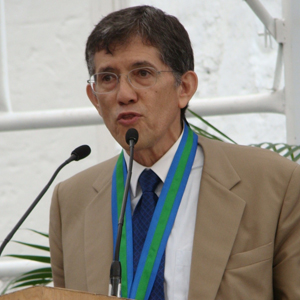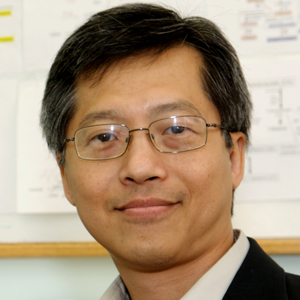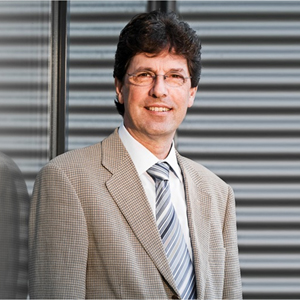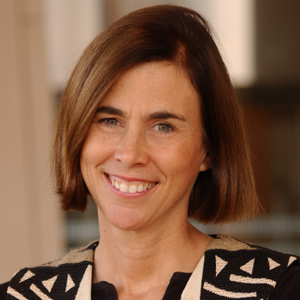|
George Church
Department of Genetics, Harvard Medical School

|
George Church is Professor of Genetics at Harvard Medical School and Director of the Center for Computational Genetics. With degrees from Duke University in Chemistry and Zoology, he co-authored research on 3D-software & RNA structure with Sung-Hou Kim. His PhD from Harvard in Biochemistry & Molecular Biology with Wally Gilbert included the first direct genomic sequencing method in 1984; initiating the Human Genome Project then as a Research Scientist at newly-formed Biogen Inc. and a Monsanto Life Sciences Research Fellow at UCSF with Gail Martin. He invented the broadly-applied concepts of molecular multiplexing and tags, homologous recombination methods, and array DNA synthesizers. Technology transfer of automated sequencing & software to Genome Therapeutics Corp. resulted in the first commercial genome sequence (the human pathogen, H. pylori, 1994). This multiplex solid-phase sequencing evolved into polonies (1999), ABI-SOLiD (2005) & open-source Polonator.org (2007) and Personal Genomes.org. He has served in advisory roles for 12 journals (including Nature Molecular Systems Biology), 5 granting agencies and 24 biotech companies (e.g. 23andme & recently founding Codon Devices, Knome and LS9). Current research focuses on integrating biosystems-modeling with Personal Genomics & synthetic biology.
Antonio Lazcano
School of Sciences, National Autonomous University of Mexico

|
Antonio Lazcano, a professor at the Universidad Nacional Autónoma de México (UNAM) in Mexico City, has studied the origin and early evolution of life for over 30 years. He was trained both as an undergraduate and graduate student at the UNAM, where he rapidly focused on the study of prebiotic evolution and the emergence of life. An academic deeply committed to public education, he has also devoted considerable efforts to scientific journalism and teaching. He is the author of several books published in Spanish, including The Origin of Life, which has become a bestseller with over 650,000 copies sold. He is considered the foremost promoter of evolutionary biology and the study of the origins of life in Latin America, and has been Professor-in-Residence or Visiting Scientist in France, Spain, Italy, Cuba, Switzerland, Russia and the USA. He has organized a number of international symposia and scientific meetings, and has been member of number of editorial boards of major journals. He has served on many international advisory and review boards for NASA and other international organizations. He was twice President of the International Society for the Study of the Origin of Life, the first Latin American scientist to occupy this position.
James Liao
Department of Chemical and Biomolecular Engineering, University of California at Los Angeles

|
Dr. James C. Liao, Chancellor’s professor, Chemical and Biomolecular Engineering, UCLA, is a pioneer in Metabolic Engineering, Synthetic Biology, and Systems Biology. He received his BS degree from National Taiwan University and PhD from University of Wisconsin-Madison. After working as a research scientist at Eastman Kodak Company, Rochester, NY, he started his academic career at Texas A&M University in 1990 and moved to UCLA in 1997. He was elected Fellow of American Institute for Medical and Biological Engineering, 2002, and received numerous awards, including the NSF Young Investigator Award (1992), the Merck Award for Metabolic Engineering (2006), the Food, Pharmaceutical, and Bioengineering Division award of American Institute of Chemical Engineers (AIChE) (2006), the Charles Thom Award of the Society for Industrial Microbiology (2007), the Marvin Johnson Award of American Chemical Society (2009), the Alpha Chi Sigma Award of AIChE (2009), and the James E. Bailey Award of Society for Biological Engineering (2009).
Virginia Lee
Department of Pathology and Laboratory Medicine, University of Pennsylvania School of Medicine

|
Dr. Virginia M.-Y. Lee is the John H. Ware 3rd Professor in Alzheimer’s Research in the Department of Pathology and Laboratory Medicine. She is the Director of the Center for Neurodegenerative Disease Research and Co-director of the Marian S. Ware Alzheimer Drug Discovery Program at the University of Pennsylvania, School of Medicine. Dr. Lee is the recipient of the Metropolitan Life Foundation Award for Medical Research in Alzheimer’s Disease (1991, 1996), the Potamkin Prize for Medical Research in Alzheimer’s Disease (1998) and the Bristol-Myers Squibb Biomedical Research Grant in Neuroscience Research (2003). Dr. Lee was a member of the National Advisory Council on Aging (NIH) and elected to membership in the Institute of Medicine of the National Academies. Dr. Lee’s research focuses on disease proteins that become misfolded and accumulate as pathological inclusions in hereditary and sporadic Alzheimer’s disease (AD), Parkinson’s disease (PD), frontotemporal dementia (FTD), amyotrophic lateral scherosis (ALS) and related neurodegenerative disorders of aging. Her work was instrumental in identifying and demonstrating that tau, α-synuclein and TDP-43 proteins form unique brain aggregates in numerous neurodegenerative diseases and provided critical evidence supporting her hypothesis that aggregation of brain proteins into potentially toxic lesions is a common mechanistic theme in diverse neurodegenerative diseases including AD, PD, FTD, ALS and related disorders. Significantly, studies of human postmortem brains and model systems of these diseases, including hereditary forms thereof, have enabled Lee to implicate the abnormal aggregation of tau , α-synuclein and TDP-43 in mechanisms leading to the formation of these inclusions, to show that these inclusions compromise neuronal viability, and, most importantly, to identify targets in drug discovery to develop better treatments for these disorders.
Thomas Lengauer
Max-Planck-Institut fur Informatik

|
Prof. Dr. Dr. Thomas Lengauer, (born 1952) is Director at the Max Planck Institute for Informatics and a professor of Informatics at Saarland University in Saarbrucken, Germany. His background is in Math (Dr. rer. nat. Berlin, Germany 1976) and Computer Science (Ph.D., Stanford 1979). In the seventies he performed research in theoretical computer science, in the 80s on design methods for integrated circuits. He has been engaged in research in computational biology since the beginning of the 90s. His major focuses of research are protein bioinformatics, computational drug screening and design and bioinformatics for understanding and curing diseases. Previously, he held the positions of a full professor at the University of Paderborn, Germany (1984-1992) and of a Director of the Institute for Algorithms and Scientific Computing at the German National Research Center for Computer Science in Sankt Augustin, near Bonn Germany (1992-2001). Dr. Lengauer is a founding member of the International Society for Computational Biology (ISCB), a member of the steering board of the international conference series RECOMB, and he headed the steering board of the European bioinformatics conference series ECCB since its foundation in 2002 until 2005. In 2001 he co-founded the BioSolveIT GmbH, Sankt Augustin, Germany, which develops and distributes Cheminformatics software. In 2003 he received the Konrad Zuse Medal of the German Informatics Society and the Karl Heinz Beckurts Award. He is a member and a senator of the German Academy of Sciences Leopoldina as well as a member of acatech – German Academy of Science and Engineering.
Jennifer Lippincott-Schwartz
Cell Biology and Metabolism Branch, National Institutes of Health

|
Jennifer Lippincott-Schwartz obtained her Ph.D from Johns Hopkins University in Baltimore, MD, received post-doctoral training with Dr. Richard Klausner at the National Institute of Child Health and Human Development (NICHD), NIH, Bethesda, MD, and is currently Chief of the Section on Organelle Biology in the Cell Biology and Metabolism Branch of the NICHD. Lippincott-Schwartz's research uses live cell imaging approaches to analyze the spatio-temporal behavior and dynamic interactions of molecules in cells. These approaches have helped to change the conventional 'static' view of protein distribution and function in cells to a more dynamic view that integrates information on protein localization, concentration, diffusion and interactions that are indiscernible from protein sequences and in vitro biochemical experiments alone. The projects in Lippincott-Schwartz's lab cover a vast range of cell biological topics, including protein transport and the cytoskeleton, organelle assembly and disassembly, and the generation of cell polarity. Analysis of the dynamics of fluorescently labeled proteins expressed in cells is performed using numerous live cell imaging approaches, including FRAP, FCS and photoactivation. Most recently, her research employs photoactivation localization microscopy, called PALM, that enables visualization of molecule distributions at high density at the nano-scale. Dr. Lippincott-Schwartz serves as Editor for Current Protocols in Cell Biology and The Journal of Cell Science and she is on the Editorial Boards of Cell and Molecular Biology of the Cell. She is an active member of the scientific community, serving as a member of the Council for the American Society of Cell Biology and on the Executive Board of the Biophysical Society. She was elected to the National Academy of Sciences in 2008.
| |